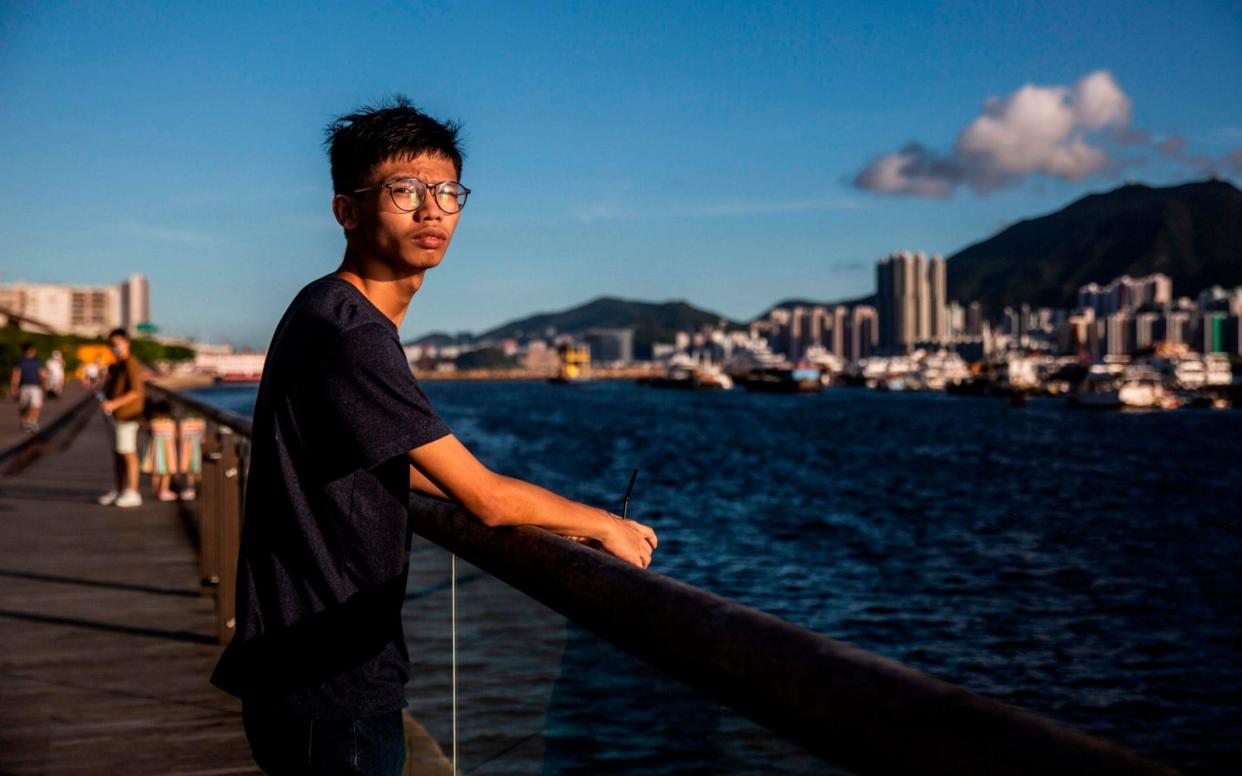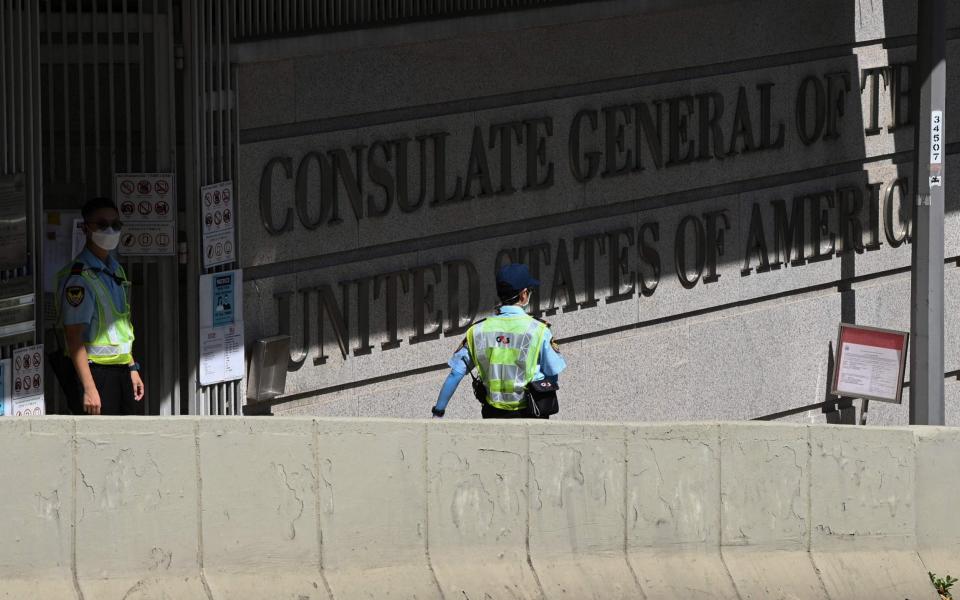Hong Kong activist Tony Chung detained while trying to seek asylum at US consulate

Hong Kong’s new national security unit on Tuesday arrested three pro-democracy activists, including Tony Chung Hon-lam, a leading figure of a now-defunct political group that had called for independence.
Mr Chung, 19, was near the US consulate where he reportedly intended to seek asylum when he was apprehended by police officers.
Yannis Ho and William Chan, who were previously involved in the same group, Studentlocalism, were arrested in the afternoon.
Hong Kong police said in a statement that the trio were arrested for inciting secession in breach of a sweeping national security law in posts made on Studentlocalism’s social media accounts.
“Most laws in the real world apply to the online world,” police said. “If anyone breaks the law that person shall be held criminally responsible. The public should by no means defy the law.”
In late June, Studentlocalism halted operations in Hong Kong with plans to move overseas before the national security law came into effect.
The law, which criminalises acts deemed by Chinese authorities as secession, subversion, terrorism and foreign collusion, was imposed by the ruling Communist Party to restore order in Hong Kong after months of mass pro-democracy protests.
Four activists are believed to have entered the US consulate on Tuesday, reported the South China Morning Post, a newspaper in Hong Kong. The US embassy in China has not commented.
Mr Chung and three others linked to Studentlocalism were first arrested in July and later released on bail.

“A few days before I was arrested [in July], I noticed a large number of people monitoring me,” Mr Chung told the Telegraph earlier.
Five men accosted and handcuffed him while he was walking past a shopping mall, before trying to force him to unlock his phone using facial recognition.
Mr Chung was later held in police custody for 48 hours before being released on bail and ordered to delete “secessionist” social media posts, he said.
Officers also searched his home, confiscating content and books deemed too political, as well as electronic devices, credit cards and even his student identification cards.
He has since cut off contact with his family out of fear they would be harassed. “I rarely let them know my situation,” he said. “I don’t want them to be troubled; it is better to live peacefully.”
Over the last decade, Hong Kong “has made the most progress in the struggle, and in the next 10 years, we will all encounter increasingly severe suppression, so the next 10 years will be our most critical last [years].”
Given the national security law, activism in general “may be no longer in Hong Kong, only overseas.”
Despite growing personal risk to his safety Mr Chung had chosen to stay in Hong Kong, telling the Telegraph, “I still want to be with all Hong Kong people.”
“I still have hope for the future of Hong Kong,” he said.
